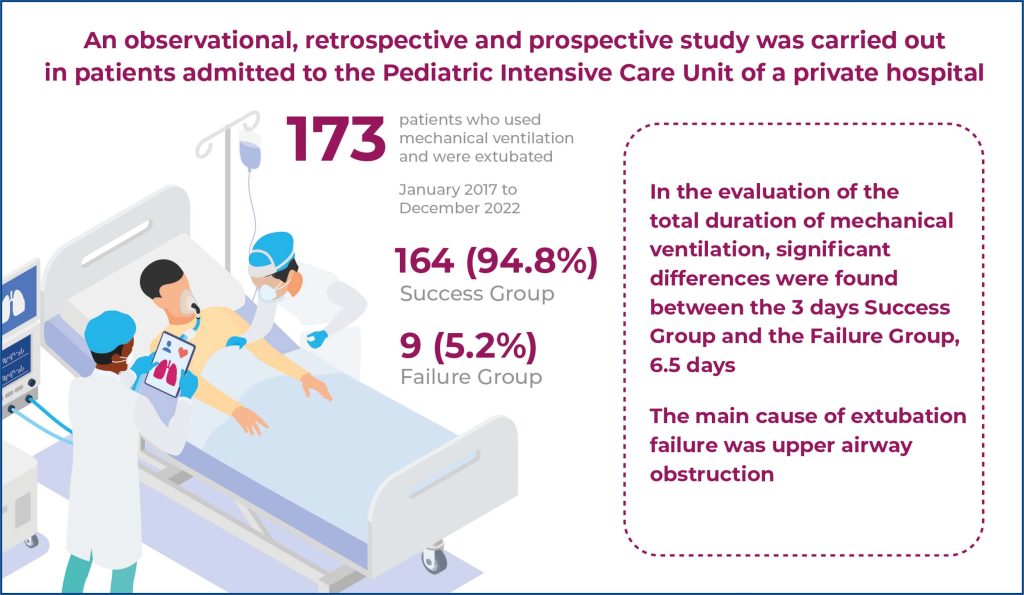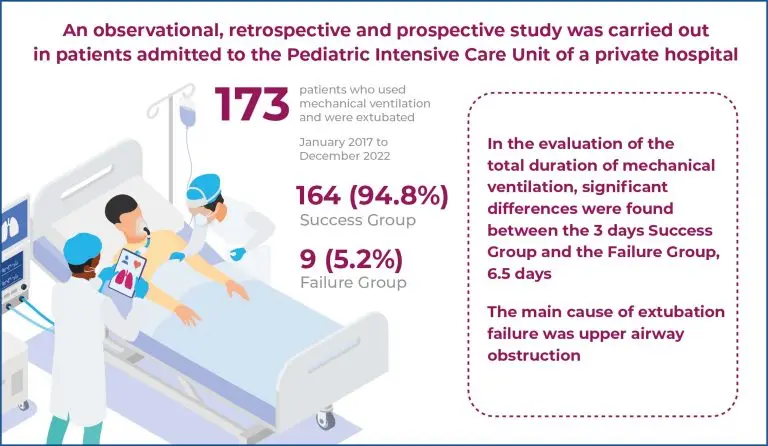einstein (São Paulo). 25/abr/2025;23:eAO0705.
Impact of extubation failure on the duration of mechanical ventilation in the pediatric population
DOI: 10.31744/einstein_journal/2025AO0705
Highlights
■ In patients who experienced extubation failure, the total ventilation time was twice as long as that of patients with successful extubation.
■ The incidence of extubation failure was 5.2%, which is relatively low compared to other studies.
■ The study revealed no significant association between the presence of pre-existing illnesses and extubation outcomes.
■ Results indicated that the primary cause of extubation failure was upper airway obstruction, accounting for 67% of cases requiring reintubation.
ABSTRACT
Objective:
To compare the epidemiological profiles of patients who experienced extubation failure with those who achieved success and to evaluate the impact of extubation failure on total mechanical ventilation duration.
Methods:
An observational study with both retrospective and prospective components was conducted on patients admitted to the Pediatric Intensive Care Unit of a private hospital. This study included patients who underwent mechanical ventilation and were extubated between January 2017 and December 2022. Patients were classified into extubation Success or Failure Groups, with failure defined as requiring a return to invasive mechanical ventilation within 48hs post-extubation. Epidemiological factors, including age, preexisting illnesses, and time on invasive mechanical ventilation, were analyzed.
Results:
A total of 173 patients were included, of which 9 (5.2%) required reintubation within 48hs. The total duration of mechanical ventilation differed significantly between the Success Group (3 days [1.8; 6.6]) and the Failure Group (6.5 days [5.6; 9.3]), p=0.004. Upper airway obstruction was identified as the primary cause of extubation failure.
Conclusion:
This study demonstrated that extubation failure doubled the total duration of mechanical ventilation compared to successful extubation. These findings highlight the importance of daily patient assessment with clearly defined clinical criteria to ensure mechanical ventilation is discontinued precisely when the patient is ready-neither prematurely nor excessively delayed.
[…]
Palavras-chave: Airway extubation; Respiration, artificial; Ventilator weaning; Intensive care units; Pediatric; Child
179



